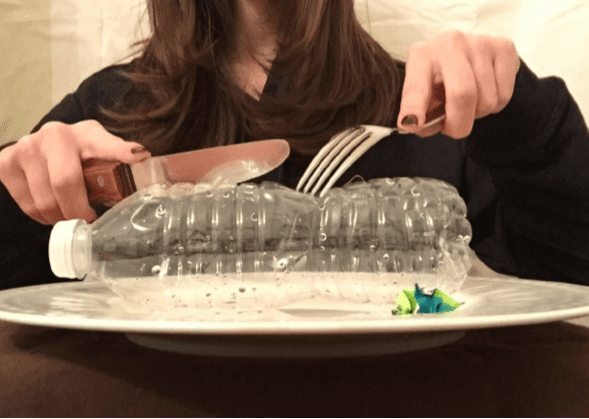
Alexia Giannaris
Don Valley Middle School (Toronto, Ont.)
Nationwide, billions of plastics enter our oceans and lakes daily, and pollute the water. The most common form is polyethylene terephthalate, a plastic that disposable water bottles and microbeads are mostly composed of. In a survey of middle school
students, it was found that 36% use products containing microbeads, and 48% admit to littering. What makes these plastics more dangerous is that after months of sitting in a marine environment, they absorb toxins from their surroundings. Animals then eat the plastics, and the pollutants they’ve collected. How does this affect us directly? Because plastic doesn’t decompose, it never truly leaves the animal’s body, so when you eat a fish that has consumed plastic, you’re eating your own trash, along with the toxins it has gathered. Now that plastic has entered the food chain, no seafood is considered 100% organic. We can reduce this by using organic cleansers and reusable containers.

